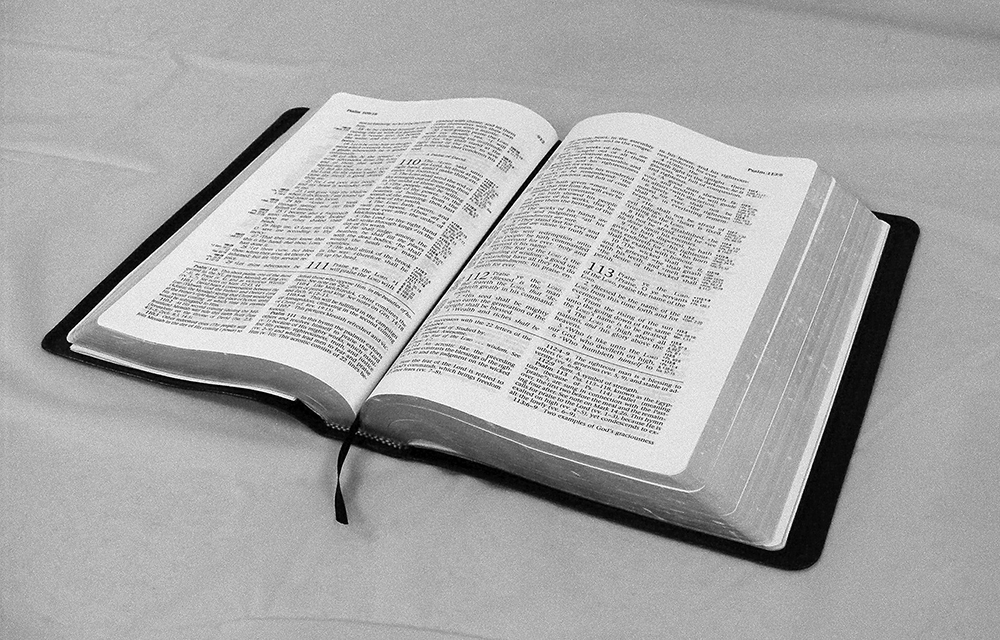“The Bible,” said Pope Gregory the Great (c. 540-604), “is a stream wherein the elephant may swim and the lamb may wade.”
As a young evangelical Protestant, I paid no attention to Gregory the Great, but I would have viewed myself as an “elephant” when it came to the Bible. I had read the Bible and memorized verses from the age of three, taken correspondence Bible courses, attended regular Bible studies and earned a degree from a Bible college.
Truth to be told, I was a water skipper, barely touching the surface of sacred Scripture. Yet several verses puzzled me; some even bothered me. Here are five passages that stand out to me, 20 years after I began to seriously consider the claims of the Catholic Church.
• John 6: The entire, lengthy chapter is a brilliantly constructed theological tour de force. The final section (beginning with verse 51) contains a repeated claim, made by Jesus, that began gnawing at me (pun intended!) even while at Bible college: “Amen, amen, I say to you, unless you eat the flesh of the Son of Man and drink his blood, you do not have life within you” (v. 53). Whatever could He mean? I consulted numerous Protestant commentaries, and they spoke of symbolic language and metaphors; some seemed more intent on what Jesus didn’t mean than on what He did mean! I was not satisfied, as those explanations made little sense of the obvious shock — and awe — intended. Then I discovered the early second-century Letter to the Smyrnaeans, written by St. Ignatius of Antioch, who denounced those heretics (the Docetists) who denied that “that the Eucharist is the flesh of our Savior Jesus Christ.”
• 1 Timothy 3:15: From an early age I had been taught that the Bible was the foundation of all truth, the final word from God on anything and everything of importance. The “Church,” I believed, was the entirety of all “true believers,” bound together by spiritual, invisible bonds. External bonds and signs of communion were fine, as far as they went — which usually wasn’t far at all. Catholics, it seemed, were always talking about “the Church,” while we were focused on Jesus and the Bible. Yet the apostle Paul, who preached Christ constantly, described the Church as “the household of God” and the “pillar and foundation of truth.” How had I missed that? In truth, I had read it many times, but without much thought at all for the deep implications of Paul’s words.
• Matthew 16:13-20: “You are Peter, and upon this rock I will build my church” (v. 18). Those words have been scrutinized, analyzed and parsed a million times. For me, they made more and more sense as I studied early Church history in detail. I found that not only was the authority of the Petrine office recognized and upheld very early, it was a truly catholic belief. Those who rejected it were usually those who also rejected core teachings about Jesus, salvation and the sacraments. Also, I saw how Jesus’ words fit into his identity as the Son of David, the Messiah-King whose kingdom would include offices and positions of authority, in part because the Church was both an invisible and visible Body.
• 2 Peter 1:3-4: As an evangelical, I usually thought of salvation as an escape from sin and death. The part I missed was the call to “become partakers of the divine nature” (v. 4, RSV). The apostle John wrote: “Beloved, we are God’s children now” (see 1 Jn 3:1-3). In short, the Catholic Church teaches that we can be filled with God’s actual, Trinitarian life. “Grace is a participation in the life of God. It introduces us into the intimacy of Trinitarian life” (CCC, no. 1997; see also Nos. 460, 1996).
• The fifth verse is the one that doesn’t exist, the never-written Bible verse that lists the 46 Old Testament books and the 27 New Testament books. As Jesuit Father Mitch Pacwa likes to say, “The Bible did not come with a Table of Contents.” It is true: “All scripture is inspired by God” (2 Tm 3:16). But what scripture? Who decides what is in and what is out? Through the study of history, I learned the truth of Blessed John Henry Newman’s famous statement: “To be deep in history is to cease to be Protestant.”
Carl E. Olson is the editor of Ignatius Insight (www.ignatiusinsight.com) and writes from Eugene, Ore.

